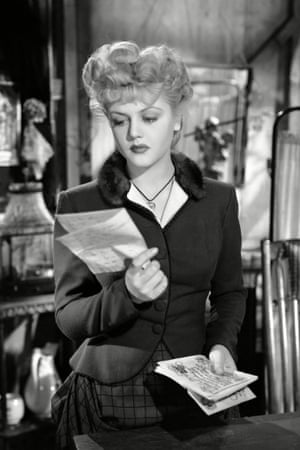A book
that changed
me
The Picture of Dorian Gray made me forever suspicious of the self-righteous
Oscar Wilde’s only novel offers a horrible vision of the power and frailty of self-delusion
Deborah Orr
Thursday 6 Augus 2015
I
have good reason for remembering the first time I read The Picture of Dorian Gray. Its conceit was captivating, in more ways than one. Gray unwittingly makes a Faustian pact whereby his own youthful beauty remains unblemished, while a portrait he hides in an attic shows the ravages visited on his face and body by his ugly character.
It was a Friday afternoon in the summer of 1984, and I sat in the living room of my flat in Edinburgh, absolutely gripped. I knew I wasn’t going to be able to finish it in a single sitting, as I really, really wanted to. My friend Eileen was coming to stay for the weekend, she’d be arriving in the early evening, and I knew that I didn’t quite have the time. But the appointed hour came and went, and she didn’t show. So I carried on reading.
 |
| Deborah Orr |
Minutes after I’d finished the novel, Eileen turned up, explaining that she was late because she’d been early. Rather than waiting at the coach station, she’d gone to the library, where she got so mesmerised by a book that she’d missed the bus. She’d had to leave this great book behind, but she was desperate to get another copy and carry on.That was quite funny, I told her, because I’d been thrilled that she was late, having been reading a compelling book myself. She should read my book, I insisted, offering it to her enthusiastically. Eileen stared at me, eyes wide, mouth open, shocked, suspicious, unguarded, like a certain portrait in a certain attic, stripped of its social mask, struggling to contain sheer reaction. I stared back. I thought she was about to have a seizure of some kind.
 |
| Oscar Wilde |
“That’s it,” she gasped, holding her hands out towards this neat Penguin paperback without quite committing to touching it. “That’s the book I was reading.” The coincidence is filed, for both of us, under: Totally Weird Moments.
Maybe I’d have forgotten the book, had it not become a precious artefact of serendipity-in-friendship, one we enjoy dusting off every few years, just to relive the pleasure of being a couple of suggestible 20-year-olds in the throes of a mild hysteria. For us, it represents an unbreakable bond, as if sharing your whole adult life isn’t bond enough.
For me, The Picture of Dorian Gray is not just a clever supernatural melodrama, but also a profound text, a horrible vision of the power and frailty of human self-delusion. It’s not profound in the way Wilde intended, I don’t think. At that time, in 1890, he believed that beauty was everything. Yet his only novel is more persuasive as a tract asserting that beauty is nothing. The inversion is all the more touching, all the more upsetting, because – had Wilde understood and heeded the insights of his own story – he surely would not have delivered himself up to his own destruction with the reckless hypocrisy that he did.
It seems wrong, casting Wilde as the author of his own misfortune. He is now seen so religiously as a martyr to homophobia that it’s almost forgotten that it was this gay man himself who started legal action against the Marquess of Queensberry, declaring it libellous to suggest he was a “sodomite”.
The pivotal moment in Dorian Gray is when Dorian, having done some charity work out of alarm at the unflattering cast that hedonism has etched on his portrait’s face, visits the attic to see how his good deeds have improved his expression. Instead, he sees an ugly sneer of hypocrisy despoiling his perfection all the more. It’s made me eternally suspicious of the self-righteous, which is not a good thing, on the whole. But it makes me all the more sad for Wilde, who knew how hypocrisy could ravage a man’s self-image, but chose to protect his public image instead.
My Wilde binge didn’t start and end in that one day. I carried on that summer reading everything he wrote and everything I could find that had been written about him. It was an escape, a relief, an unjust victimhood that could be understood more impartially because it had no personal parallel at all with me.
At that time I was furious about class discrimination, Thatcherism, the miners’ strike, all that. The fury was made worse by the fact that I’d gone to a posh university, the first in my family, and discovered – oh woe, oh confusion – that privileged people quite often seemed friendly, interesting, generous and likable.
It was from these people that I first learned properly about feminism, which until then had been something on the telly called “women’s lib”, which my mother said was nonsense. But it seemed weird, taking lessons about oppression from these young women who’d had more opportunities in life than pretty much every male I’d ever known until I fell in with their crowd.Wilde, of course, had been a highly privileged man himself, privileged in background, education, intelligence and talent. None of which had stopped him from dying at the age of 46, broken and in exile. I became fascinated by gay rights, a proper fag-hag. Watching homophobia being exposed as a shameful weapon wielded by bullies and cowards has been a joy in my life, not because I think it has any primacy over other prejudices, but because it seemed more easily isolated and therefore more easily legislated against. I think recent history has borne this out. So, when the absolutely necessary railing against the “dead, white males” gained currency, I thought, “Up to a point, but … Oscar.”
 |
| Oscar Wilde |
Decades later, when I heard about intersectionality, I simply thought: “Yup, that’s what’s been missing from this stuff all along.” Gay rights were the low-hanging fruits of anti-discrimination. So to speak. The rest is much harder, but at least there’s an example that offers room for optimism. Perhaps.
I still think it’s too formulaic, the compiling of league tables of victimhood. The sense that you get from the most absurd quarters is that their own personal sense of victimhood is the one that, once sorted, will liberate the world. Many people chose identity politics over socialism in the 1980s, maybe just because these were positive changes that seemed possible, at a time when the tide surged against a universal egalitarianism. I know that Dorian Gray changed me. But there’s no portrait in my attic, so I don’t know whether it changed me for the better or for the worse, just as I don’t know when or if the rising tide of inequality will ever turn again.






No comments:
Post a Comment